- Home
- Linwood Barclay
Final Assignment Page 6
Final Assignment Read online
Page 6
‘What happened, Malcolm?’
‘I just wanted to protect my son. I just wanted to save him. I did what any father would have done.’
He’d walked over behind his desk. The bat in his hands was shaking. He gripped it more tightly to try to make it stop.
‘How did you know he was there?’ I asked again. ‘How did you find Mike after Franny killed him?’
Malcolm turned and looked out the window. ‘I heard him.’
It took a second for that to sink in. ‘Franny didn’t kill him,’ I said.
Malcolm shook his head slowly.
‘She thought she had, and then she ran,’ I said.
‘When Chandler slipped out of the house, I heard him go. Greta was asleep. I thought, what the hell is he up to now? He and Mike humiliated that boy, then he writes that damn story, and now he was sneaking out. I wanted to stop him from getting himself into anything else. So I … I followed him. But by the time I got outside, he was out of sight, so I wandered up and down the streets, and down near Clampett Park. He was walking back from there, heading toward the house. He was just walking, he wasn’t doing anything wrong that I could see, so I slipped into the woods and let him go past. And that was when I heard moaning, someone crying for help.’
I waited.
‘I went into the woods and I found Mike. I had my phone with me and was using it like a flashlight. I could see his head was bleeding, really bad. He’d been hit more than once. He was making these gurgling sounds, like maybe he was close to dying.’
‘But not dead,’ I said.
Malcolm turned away from the window, back to me.
‘He looked up at me, I think he could make out who I was, and he just said, “Why?” And I panicked. I’d read the story that got Chandler in trouble. I’d just seen him in the area. I figured there was something … something wrong in my son’s head, that maybe he wrote that piece to warn us what he was going to do. I … I wasn’t thinking clearly, but I thought Chandler’s life would be over. That when Mike told the police what he had done to him …’
‘So you picked up the bat and finished him off,’ I said. ‘So he wouldn’t be able to tell the police Chandler did it.’
Malcolm turned and looked at me. ‘I wanted to save my son.’
‘Chandler didn’t need saving. But there was still a chance to save Michael.’
‘How could I … I didn’t know that.’
‘So you finished what Franny had started, wiped down the bat, and got out of there. And the next day you bought another bat to bolster the argument that the murder weapon wasn’t Chandler’s.’
‘What would you have done?’ he asked. ‘What would you do to save your son?’
It was too late for that for me.
Suddenly he swung the bat up over his head, both hands on the grip, and brought it crashing down onto the top of his desk. It was like a thunderclap. He took another swing, this time side to side, clearing the desk of a lamp and a clock and several other items that went crashing to the floor.
Then he dropped the bat, and collapsed into his leather office chair.
The door opened and Greta stood there, dumbstruck.
‘What’s happened?’ she asked. ‘What in God’s name has happened?’
I found my way out, wondering whether Barry Duckworth was going to get tired of hearing from me.
ONE
I hate this town.
THE FIRST DAY
TWO
David
A couple of hours before all hell broke loose, I was in bed, awake since five, pondering the circumstances that had returned me, at the age of forty-one, to my childhood home.
It wasn’t that the room was exactly the same as when I’d moved out almost twenty years ago. The Ferrari poster no longer hung over the blue-striped wallpaper, and the kit I built of the starship Enterprise—hardened amberlike droplets of glue visible on the hull—no longer sat on the dresser. But it was the same dresser. And it was the same wallpaper. And this was the same single bed.
Sure, I’d spent the night in here a few times over the years, as a visitor. But to be back here as a resident? To be living here? With my parents, and my son, Ethan?
God, what a fucking state of affairs. How had it come to this?
It wasn’t that I didn’t know the answer to that question. It was complicated, but I knew.
The descent had begun five years ago, after my wife, Jan, passed away. A sad story, and not one worth rehashing here. After half a decade, there were things I’d had no choice but to put behind me. I’d grown into my role of single father. I was raising Ethan, nine years old now, on my own. I’m not saying that made me a hero. I’m just trying to explain how things unfolded.
Wanting a new start for Ethan and myself, I quit my job as a reporter for the Promise Falls Standard—not that hard a decision, considering the lack of interest by the paper’s management in actually covering anything approaching news—and accepted an editing position on the city desk at the Boston Globe. The money was better, and Boston had a lot to offer Ethan: the children’s museum, the aquarium, Faneuil Hall Marketplace, the Red Sox, the Bruins. If there was a better place for a boy and his dad, I couldn’t think where it might be. But …
There’s always a but.
But most of my duties as an editor took place in the evening, after reporters had handed in their stories. I could see Ethan off to school, sometimes even pop by and take him to lunch, since I didn’t have to be at the paper until three or four in the afternoon. But that meant most nights I did not have dinner with my son. I wasn’t there to make sure Ethan spent more time on his homework than on video games. I wasn’t there to keep him from watching countless episodes of shows about backwoods duck hunters or airheaded wives of equally airheaded sports celebrities or whatever the latest celebration of American ignorance and/or wretched excess happened to be. But the really troubling thing was, I just wasn’t there. A lot of being a dad amounts to being around, being available. Not being at work.
Who was Ethan supposed to talk to if he had a crush on some girl—perhaps unlikely at nine, but you never knew—or needed advice on dealing with a bully, and it was eight o’clock at night? Was he supposed to ask Mrs. Tanaka? A nice woman, no doubt about it, who was happy to make money five nights a week looking after a young boy now that her husband had passed away. But Mrs. Tanaka wasn’t much help when it came to math questions. She didn’t feel like jumping up and down with Ethan when the Bruins scored in overtime. And it was pretty hard to persuade her to take up a controller and race a few laps around a virtual Grand Prix circuit in one of Ethan’s video games.
By the time I stepped wearily through the door—usually between eleven and midnight, and I never went out for drinks after the paper was put to bed because I knew Mrs. Tanaka wanted to return to her own apartment eventually—Ethan was usually asleep. I had to resist the temptation to wake him, ask how his day had gone, what he’d had for supper, whether he’d had any problems with his homework, what he’d watched on TV.
How often had I fallen into bed myself with an aching heart? Telling myself I was a bad father? That I’d made a stupid mistake leaving Promise Falls? Yes, the Globe was a better paper than the Standard, but any extra money I was making was more than offset by what was going into Mrs. Tanaka’s bank account, and a high monthly rent.
My parents offered to move to Boston to help out, but I wanted no part of that. My dad, Don, was in his early seventies now, and Arlene, my mother, was only a couple of years behind him. I was not going to uproot them, especially after a recent scare Dad put us all through. A minor heart attack. He was okay now, getting his strength back, taking his meds, but the man was not up to a move. Maybe one day a seniors’ residence in Promise Falls, when the house became too much for him and Mom to take care of, but moving to a big city a couple of hundred miles away—more than three hours if there was traffic—was not in the cards.
So when I heard the Standard was looking for a reporter, I swall
owed my pride and made the call.
I felt like I’d eaten a bucket of Kentucky Fried Crow when I called the managing editor and said, “I’d like to come back.”
It was amazing there was actually a position. As newspaper revenues declined, the Standard, like most papers, was cutting back wherever it could. As staff left, they weren’t replaced. But the Standard was down to half a dozen people, a number that included reporters, editors, and photographers. (Most reporters were now “two-way,” meaning they could write stories and take pictures, although in reality, they were more like “four-way” or “six-way,” since they also filed for the online edition, did podcasts, tweeted—you name it, they did it. It wouldn’t be long before they did home delivery to the few subscribers who still wanted a print edition.) Two people had left in the same week to pursue nonjournalistic endeavors—one went to public relations, or “the dark side,” as I had once thought of it, and the other became a veterinarian’s assistant—so the paper could not provide its usual inadequate coverage of goings-on in Promise Falls. (Little wonder that many people had, for years, been referring to the paper as the Substandard.)
It would be a shitty place to go back to. I knew that. It wouldn’t be real journalism. It would be filling the space between the ads, at least, what ads there were. I’d be cranking out stories and rewriting press releases as quickly as I could type them.
But on the upside, I’d be back to working mostly days. I’d be able to spend more time with Ethan, and when I did have evening obligations, Ethan’s grandparents, who loved him beyond measure, could keep an eye on him.
The Standard’s managing editor offered me the job. I gave my notice to the Globe and my landlord and moved back to Promise Falls. I did move in with my parents, but that was to be a stopgap measure. My first job would be to find a house for Ethan and myself. All I could afford in Boston was a rented apartment, but back here, I’d be able to get us a proper home. Real estate prices were in free fall.
Then everything went to shit at one fifteen p.m. on Monday, my first day back at the Standard.
I’d returned from interviewing some folks who were petitioning for a crosswalk on a busy street before one of their kids got killed, when the publisher, Madeline Plimpton, came into the newsroom.
“I have an announcement,” she said, the words catching in her throat. “We won’t be publishing an edition tomorrow.”
That seemed odd. The next day was not a holiday.
“And we won’t be publishing the day after that,” Plimpton said. “It’s with a profound sense of sadness that I tell you the Standard is closing.”
She said some more things. About profitability, and the lack thereof. About the decline in advertising, and classifieds in particular. About a drop in market share, plummeting readership. About not being able to find a sustainable business model.
And a whole lot of other shit.
Some staff started to cry. A tear ran down Plimpton’s cheek, which, to give her the benefit of the doubt, was probably genuine.
I was not crying. I was too fucking angry. I had quit the goddamn Boston Globe. I’d walked away from a decent, well-paying job to come back here. As I went past the stunned managing editor, the man who’d hired me, on my way out of the newsroom, I said, “Good to know you’re in the loop.”
Out on the sidewalk, I got out my cell and called my former editor in Boston. Had the job been filled? Could I return?
“We’re not filling it, David,” he said. “I’m sorry.”
So now here I was, living with my parents.
No wife.
No job.
No prospects.
Loser.
It was seven. Time to get up, have a quick shower, wake up Ethan, and get him ready for school.
I opened the door to his room—it used to be a sewing room for Mom, but she’d cleared her stuff out when we moved in—and said, “Hey, pal. Time to get cracking.”
He was motionless under the covers, which obscured all of him but the topsy-turvy blond hair atop his head.
“Rise and shine!” I said.
He stirred, rolled over, pulled down the bedspread enough to see me. “I don’t feel good,” he whispered. “I don’t think I can go to school.”
I came up alongside the bed, leaned over, and put my hand to his forehead. “You don’t feel hot.”
“I think it’s my stomach,” he said.
“Like the other day?” My son nodded. “That turned out to be nothing,” I reminded him.
“I think this might be different.” Ethan let out a small moan.
“Get up and dressed and we’ll see how you are then.” This had been becoming a pattern the last couple of weeks. Whatever ailment was troubling him, it certainly hadn’t been troubling him on weekends, when he could down four hot dogs in ten minutes, and had more energy than everyone else in this house combined. Ethan didn’t want to go to school, and so far I’d been unable to get him to tell me why.
My parents, who believed sleeping in was staying in bed past five thirty—I’d heard them getting up as I’d stared at that dark ceiling—were already in the kitchen when I made my entrance. They’d have both had breakfast by this time, and Dad, on his fourth coffee by now, was sitting at the kitchen table, still trying to figure out how to read the news on an iPad tablet, which Mom had bought for him after the Standard stopped showing up at their door every morning.
He was stabbing at the device with his index finger hard enough to knock it off its stand.
“For God’s sake, Don,” she said, “you’re not trying to poke its eye out. You just tap it lightly.”
“I hate this thing,” he said. “Everything’s jumping around all over the place.”
Seeing me, Mom adopted the excessively cheerful tone she always used when things were not going well. “Hello!” she said. “Sleep well?”
“Fine,” I lied.
“I just made a fresh pot,” she said. “Want a cup?”
“I can manage.”
“David, did I tell you about that girl at the checkout at the Walgreens? What was her name? It’ll come to me. Anyway, she’s cute as a button and she’s split up with her husband and—”
“Mom, please.”
She was always on the lookout, trying to find someone for me. It was time, she liked to say. Ethan needed a mother. I’d grieved long enough, she was forever reminding me.
I wasn’t grieving.
I’d had six dates in the last five years, with six different women. Slept with one. That was it. Losing Jan, and the circumstances around her death, had made me averse to commitment, and Mom should have understood that.
“I’m just saying,” she persisted, “that I think she’d be pretty receptive if you were to ask her out. Whatever her name is. Next time we’re in there together, I’ll point her out.”
Dad spoke up. “For God’s sake, Arlene, leave him alone. And come on. He’s got a kid and no job. That doesn’t exactly make him a great prospect.”
“Good to have you in my corner, Dad,” I said.
He made a face, went back to poking at his tablet. “I don’t know why the hell I can’t get an honest-to-God goddamn paper to my door. Surely there are still people who want to read an actual paper.”
“They’re all old,” Mom told him.
“Well, old people are entitled to the news,” he said.
I opened the fridge, rooted around until I’d found the yogurt Ethan liked, and a jar of strawberry jam. I set them on the counter and brought down a box of cereal from the cupboard.
“They can’t make money anymore,” Mom told him. “All the classifieds went to craigslist and Kijiji. Isn’t that right, David?”
I said, “Mmm.” I poured some Cheerios into a bowl for Ethan, who I hoped would be down shortly. I’d wait till he showed before pouring on milk and topping it with a dollop of strawberry yogurt. I dropped two slices of white Wonder bread, the only kind my parents had ever bought, into the toaster.
My mother sa
id, “I just put on a fresh pot. Would you like a cup?”
Dad’s head came up.
I said, “You just asked me that.”
Dad said, “No, she didn’t.”
I looked at him. “Yes, she did, five seconds ago.”
“Then”—with real bite in his voice—“maybe you should answer her the first time so she doesn’t have to ask you twice.”
Before I could say anything, Mom laughed it off. “I’d forget my head if it wasn’t screwed on.”
“That’s not true,” Dad said. “I’m the one who lost his goddamn wallet. What a pain in the ass it was getting that all sorted out.”
Mom poured some coffee into a mug and handed it to me with a smile. “Thanks, Mom.” I leaned in and gave her a small kiss on her weathered cheek as Dad went back to stabbing at the tablet.
“I wanted to ask,” she said to me, “what you might have on for this morning.”
“Why? What’s up?”
“I mean, if you have some job interviews lined up, I don’t want to interfere with that at all or—”
“Mom, just tell me what it is you want.”
“I don’t want to impose,” she said. “It’s only if you have time.”
“For God’s sake, Mom, just spit it out.”
“Don’t talk to your mother that way,” Dad said.
“I’d do it myself, but if you were going out, I have some things I wanted to drop off for Marla.”
Marla Pickens. My cousin. Younger than me by a decade. Daughter of Mom’s sister, Agnes.
“Sure, I can do that.”
“I made up a chili, and I had so much left over, I froze some of it, and I know she really likes my chili, so I froze a few single servings in some Glad containers. And I picked her up a few other things. Some Stouffer’s frozen dinners. They won’t be as good as homemade, but still. I don’t think that girl is eating. It’s not for me to comment, but I don’t think Agnes is looking in on her often enough. And the thing is, I think it would be good for her to see you. Instead of us old people always dropping by. She’s always liked you.”

 Chase
Chase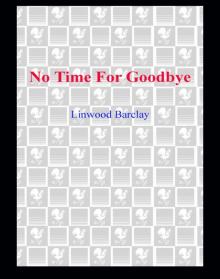 No Time for Goodbye
No Time for Goodbye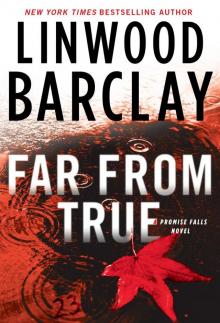 Far From True
Far From True Lone Wolf
Lone Wolf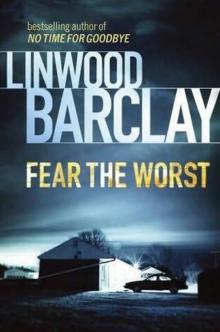 Fear the Worst
Fear the Worst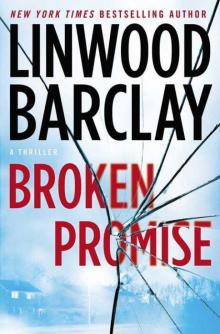 Broken Promise
Broken Promise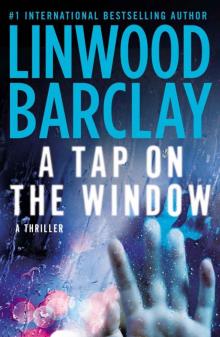 A Tap on the Window
A Tap on the Window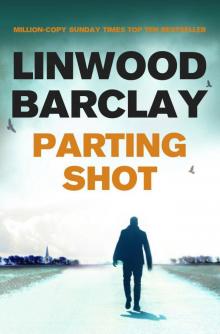 Parting Shot
Parting Shot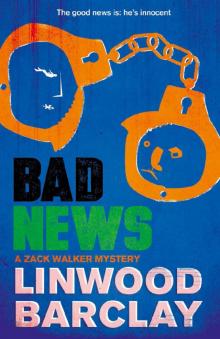 Bad News
Bad News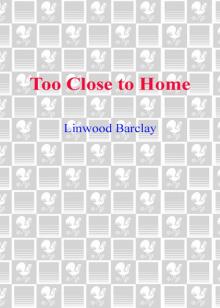 Too Close to Home
Too Close to Home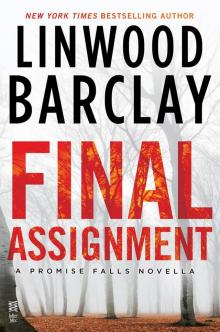 Final Assignment
Final Assignment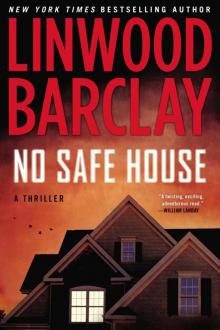 No Safe House
No Safe House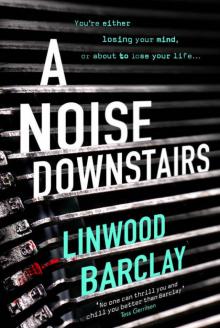 A Noise Downstairs
A Noise Downstairs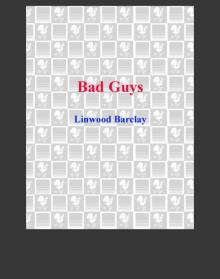 Bad Guys
Bad Guys The Accident
The Accident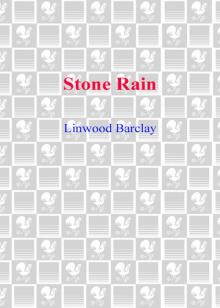 Stone Rain
Stone Rain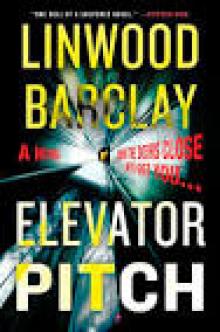 Elevator Pitch
Elevator Pitch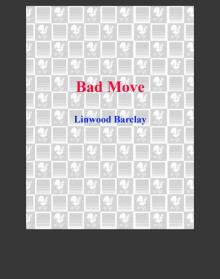 Bad Move
Bad Move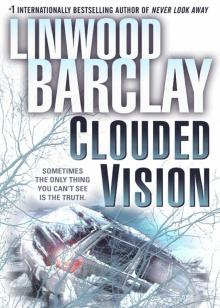 Clouded Vision
Clouded Vision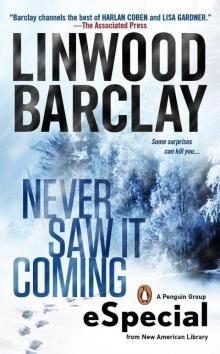 Never Saw It Coming
Never Saw It Coming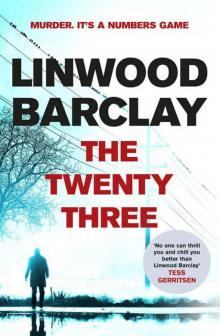 The Twenty-Three
The Twenty-Three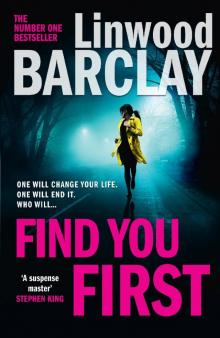 Find You First
Find You First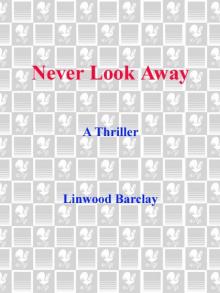 Never Look Away
Never Look Away Elevator Pitch (UK)
Elevator Pitch (UK)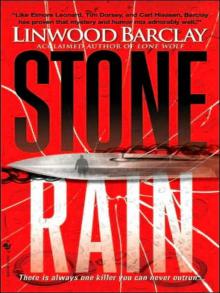 Stone Rain zw-4
Stone Rain zw-4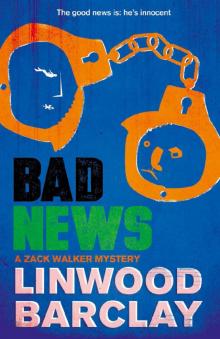 Bad News: A Zack Walker Mystery #4
Bad News: A Zack Walker Mystery #4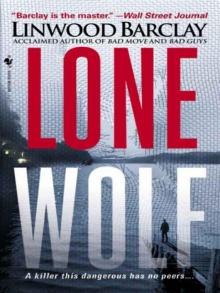 Lone Wolf zw-3
Lone Wolf zw-3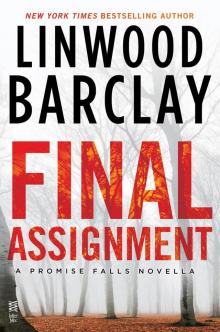 Final Assignment: A Promise Falls Novella
Final Assignment: A Promise Falls Novella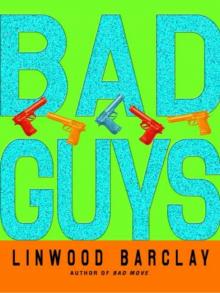 Bad Guys zw-2
Bad Guys zw-2 Never Saw It Coming: (An eSpecial from New American Library)
Never Saw It Coming: (An eSpecial from New American Library)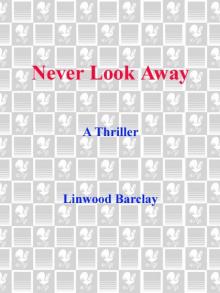 Never Look Away: A Thriller
Never Look Away: A Thriller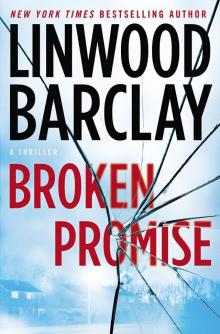 Broken Promise: A Thriller
Broken Promise: A Thriller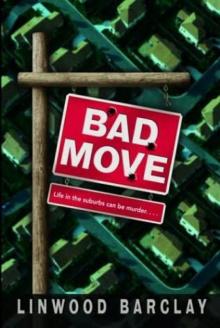 Bad Move zw-1
Bad Move zw-1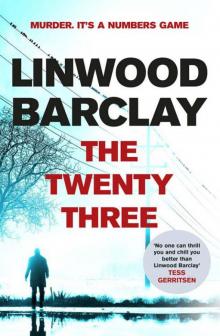 The Twenty-Three 3 (Promise Falls)
The Twenty-Three 3 (Promise Falls)